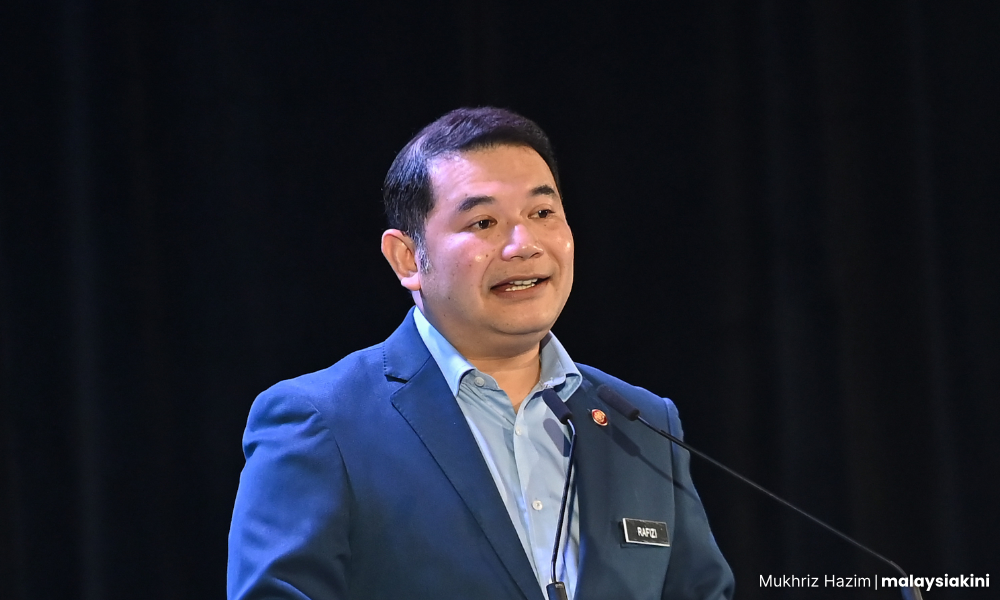A survey conducted by the Federation of Malaysian Manufacturers (FMM) found that many employers are hesitant to the progressive wage model (PWM) mooted by the government.
According to the 24th edition of the FMM’s Business Conditions Survey and based on the 613 respondents surveyed, only 18 percent volunteered to participate in the PWM programme.
“Most (54 percent) are not sure if they would and 28 percent would not (participate),” said FMM president Soh Thian Lai in a statement.
The survey was conducted between Jan 12 and Feb 26, and tracked business confidence via the FMM Business Conditions Index (FMM BCI) covering the actual performance in the second half of 2023 and outlook for first half of this year.
On Nov 30 last year, the government tabled a white paper outlining its plans for a progressive wage policy that would be implemented this year, with a proposal that it target workers earning less than RM5,000 per month.

This comes as the Department of Statistics Malaysia said the median wage for those in formal employment, making two-thirds of citizens, is RM2,600 a month.
Economy Minister Rafizi Ramli said that enrolment in the programme is voluntary but it would come with financial incentives for participating employers.
For a start, he proposed that employers can get a fixed incentive of up to RM200 per month for entry-level workers and up to RM300 per month for workers for a period of 12 months from the government.

Increments, he said, would be tied to workers’ productivity and skills.
According to Soh, respondents were concerned about the programme – primarily citing the lack implementation mechanism and requirements behind it.
“Concerns about PWM are abound, with 56 percent of the respondents apprehensive about the cost of implementation and its impact on the overall operation cost.
“While the proof of compliance was viewed by 33 percent of the respondents as being an administrative burden, the limitations on the types of upskilling and reskilling were at 27 percent, while 23 percent opined that PWM’s implementation may be able to help retain and attract talent to their companies,” Soh added.
Optimistic of 2024 but…
On the economic outlook, Soh said business conditions in the Malaysian manufacturing sector improved in the second half of 2023 despite challenges in the global and domestic economic landscapes.
As for this year, economic conditions are expected to improve, including the easing of global interest rates as inflation continues its descent.
With that, manufacturing activity could likely gain some momentum, albeit slowly, with an expected pick-up in sales, production, capital investment and hiring.
However, while improvements resulted in cautious optimism, a majority of manufacturers remained hesitant to PWM.
According to the survey, business activity picked up in second half of 2024 as shown by the general business conditions index which, at 89, gained 23 points from the first half.
Some 26 percent of the 613 respondents noted an increase in business activity during this period - up from 20 percent in the first half.

“Domestic and export sales also improved within the same period, but with indices still hovering below the threshold level of optimism, it suggests the increase in local and export sales had remained below expectations.
“Higher local and export sales were reported by 21 percent and 22 percent of the respondents in the second half of 2023, up from 18 percent and 17 percent, respectively.
“Most, however, reported no change in their sales locally and abroad, as indicated by 44 percent and 36 percent of the respondents, respectively, while weak local and export sales were experienced by 35 percent and 42 percent of the respondents, respectively.
“Production volume and capacity utilisation shifted higher as new orders and sales picked up pace but like sales, their readings below the optimism threshold level suggest much room for improvement,” said Soh.
Challenges ahead
Despite that, Soh said manufacturing costs only eased slightly while employment opportunities in the sector were generally less than in the previous year.
“Last year was exceptionally demanding, with both the global and domestic economies having to bear the weight of formidable challenges.
“As countries and businesses navigated through the complex economic headwinds, this year emerge as a crucible of economic endurance, shaping policies and practices for the foreseeable future.
“The biggest challenges to business operations and growth in 2024 as revealed by the respondents were the increasing costs of inputs as cited by 62 percent of respondents, followed by weak demand (56 percent) and ringgit depreciation (51 percent).
“In descending order of responses, increasing competition, attracting new customers, volatility in energy prices and geopolitical conflicts were cited by 47 percent to 33 percent of the respondents.
“Featuring at the bottom of their lists are, among others, data security, difficulty in obtaining financing, subsidy rationalisation, and access to foreign skilled labour (expatriates).” - Mkini




No comments:
Post a Comment
Note: Only a member of this blog may post a comment.